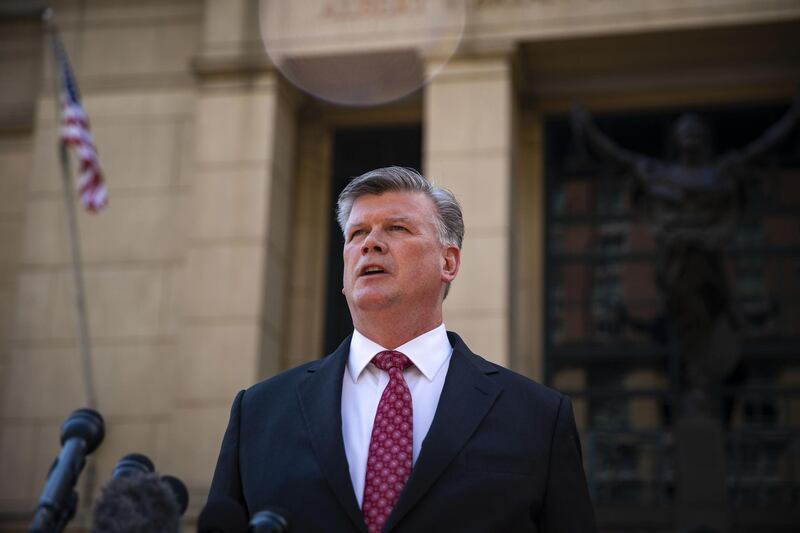Paul Manafort’s legal team rested its case without calling any witnesses on Tuesday, setting the stage for closing arguments before the judge instructs the jury for a verdict.
Mr Manafort elected not to testify in his defence, choosing to rely instead on the team’s cross-examination of government witnesses including Rick Gates, his long-time deputy, and several accountants, bookkeepers and bankers with whom he had financial dealings.
Mr Manafort, President Donald Trump’s former campaign chairman, is accused of defrauding banks to secure loans and hiding overseas bank accounts and income from United States tax authorities. Earlier, District Judge TS Ellis III denied a defence motion to acquit Mr Manafort on the charges because prosecutors had not proved their case.
Closing arguments are expected on Wednesday, and jurors may then start deliberating.
_______________
Read more:
[ Banker recalls red flags on former Trump campaign chairman's loan application ]
[ 'We broke the law' Manafort protege tells court on return to stand ]
_______________
After prosecutors rested their case late on Monday, the drama on Tuesday was over whether Mr Manafort would offer any evidence. The answer was delayed as the judge held a two-hour hearing behind closed doors for unexplained reasons.
After Judge Ellis denied the defence request to dismiss the indictment, he turned to Mr Manafort’s team and asked whether it wished to offer any evidence.
“The defence rests,” Kevin Downing, a Manafort lawyer, replied.
The judge then called Mr Manafort to the podium and asked whether he understood that “you have the absolute right to testify and you have the absolute right not to testify” and that the jurors would be instructed to not let his decision influence their deliberations.
Mr Manafort said he understood. The judge then asked if he had had an opportunity to confer with counsel before deciding whether to testify.
“I have decided,” Mr Manafort replied. Judge Ellis next asked if he wanted to testify. “No sir,” Mr Manafort said.
If Mr Manafort had decided to testify, he would have exposed himself to a brutal cross-examination that would have put his credibility squarely before the jury and shifted jurors’ focus away from Mr Gates, lawyers said.
“Manafort had far more to lose than to gain if he testified or called any witnesses,” said David Weinstein, a former federal prosecutor. “If jurors hear him on the stand and they think he’s lying, it’s over for him.”
Mr Gates testified that he helped Mr Manafort hide income that he received over a decade working as a political consultant for pro-Russia politicians in Ukraine. He also told jurors about how that income was moved through undeclared companies in Cyprus.
Among the witnesses special counsel Robert Mueller called over 11 days were Mr Manafort’s bookkeeper, tax accountants, bankers and government agents, to corroborate Mr Gates’s testimony and lay out Mr Manafort’s financial activities and offshore accounts. Prosecutors also introduced hundreds of documents aimed at outlining the extent of Mr Manafort’s misrepresentations.
On cross-examination, defence lawyers depicted Mr Gates as a liar who embezzled millions of dollars from his boss and used money taken from his companies to cheat on his wife.
Judge Ellis sent jurors home in the early afternoon with instructions to return in the morning to hear closing arguments in the case before receiving their instructions for deliberation. Each side would have two hours for their arguments, and Mr Ellis said instructions would take 90 minutes.
If convicted, Mr Manafort faces a sentence of 8 to 10 years on the tax charges and could be looking at even more time if the jury finds him guilty of any of the nine counts of bank fraud and bank fraud conspiracy, which each carry a maximum sentence of 30 years' imprisonment.
Jurors will have to rely on the evidence admitted, their recollections and the notes they took in composition books provided by the court. Mr Ellis has said he will not allow them to hear read-backs of testimony from transcripts.






